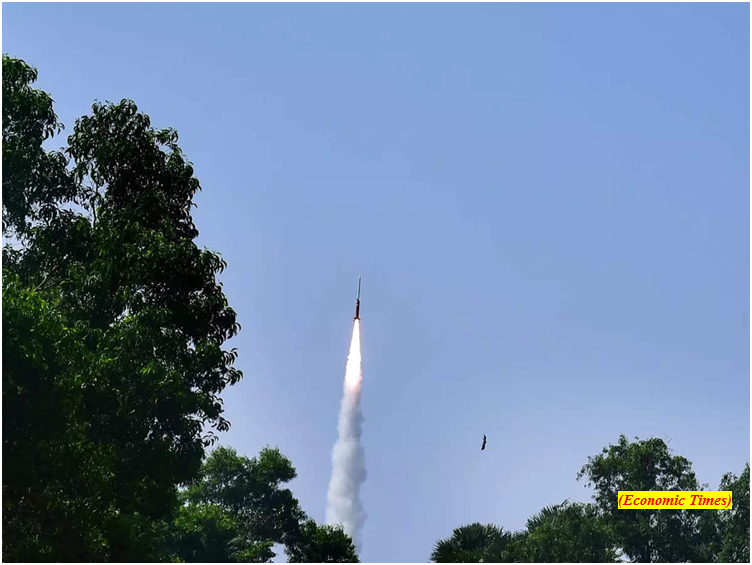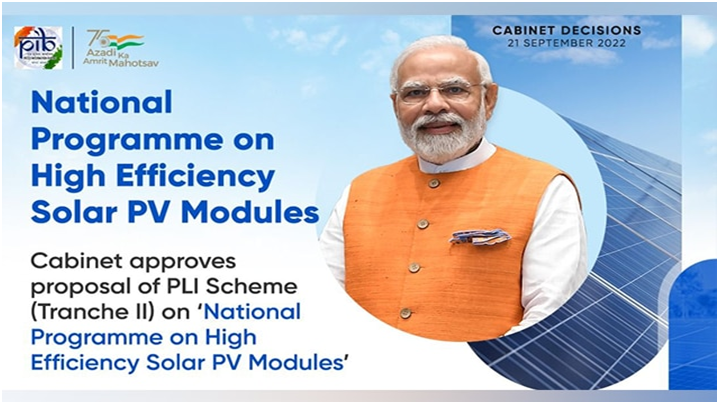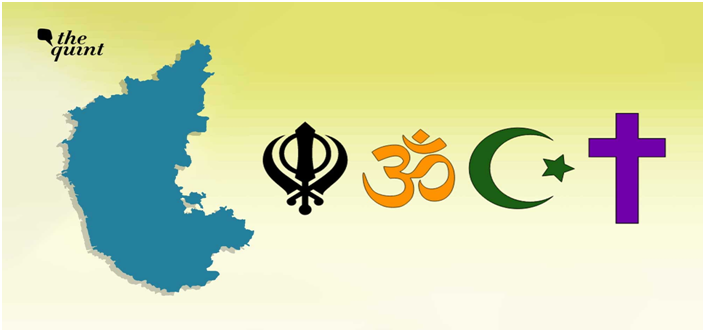ISRO successfully tests hybrid motor, eyes new rocket propulsion system (GS Paper 3, Science and Tech)

Why in news?
- Recently, the Indian Space Research Organisation (ISRO) successfully demonstrated a hybrid propulsion system that uses a solid fuel and liquid oxidiser.
- The hybrid motor was tested at the ISRO Propulsion Complex (IPRC), Mahendragiri.
Significance:
- The hybrid system is more efficient, greener' and safer to handle and paves the way for new propulsion technologies for future missions
- The Vikram Sarabhai Space Centre (VSSC) tested it with support from the Liquid Propulsion Systems Centre (LPSC).
Hybrid Fuels:
- In the ground-based test, the flight equivalent 30 kN hybrid motor used Hydroxyl-terminated polybutadiene (HTPB)-based aluminised solid fuel and liquid oxygen (LOX) as the oxidiser.
- Conventional HTPB-based solid propellant motors used in rockets use ammonium perchlorate as oxidiser. In rocket engines, oxidisers supply the oxygen needed for combustion.
- While both HTPB and LOX are green, the cryogenic LOX is safer to handle.
- And unlike conventional solid motors, the hybrid technology permits restarting and throttling capabilities on the motor.
- The use of liquids facilitates throttling and control over the flow rate of LOX.
Way Forward:
- The technology demonstration paves the way for hybrid propulsion-based sounding rockets and an exciting platform for vertical landing experiments for spent-stage recovery.
- As part of perfecting the technology, ISRO will try it out on a sounding rocket launch in future.
Cabinet approves PLI Scheme on ‘National programme on High Efficiency Solar PV Modules’
(GS Paper 3, Economy)
Why in news?
- Recently, the Cabinet has approved the Ministry of New & Renewable Energy’s proposal for implementation of the Production Linked Incentive Scheme (Tranche II) on ‘National programme on High Efficiency Solar PV Modules’.
- It has been approved with an outlay of Rs.19,500 crore for achieving manufacturing capacity of Giga Watt (GW) scale in High Efficiency Solar PV Modules.

Aim:
- The national programme on High Efficiency Solar PV Modules aims to build an ecosystem for manufacturing of high efficiency solar PV modules in India, and thus reduce import dependence in the area of Renewable Energy.
- It will strengthen the Atamnirbhar Bharat initiative and generate employment.
Selection Process:
- Solar PV manufacturers will be selected through a transparent selection process.
- PLI will be disbursed for 5 years post commissioning of solar PV manufacturing plants on sales of high efficiency solar PV modules from the domestic market will be incentivised.
The outcomes/benefits expected from the scheme are as follows:
- It is estimated that about 65,000 MW per annum manufacturing capacity of fully and partially integrated, solar PV modules would be installed.
- The scheme will bring direct investment of around Rs.94,000 crore.
- Creation of manufacturing capacity for Balance of Materials like EVA, Solar glass, Backsheet, etc.
- Direct employment of about 1,95,000 and indirect employment of around 7,80,000 persons.
- Import substitution of approximately Rs.1.37 lakh crore.
- Impetus to Research and Development to achieve higher efficiencies in Solar PV Modules.
Background:
- For solar energy sector, in April 2021, the Cabinet approved a Production Linked Incentive (PLI) Scheme, namely, ‘National Programme on High Efficiency Solar PV Modules’, with an outlay of Rs. 4,500 crore.
- The ‘National Programme on High Efficiency Solar PV Modules’ targets direct employment to 30,000 people and indirect jobs to 1.2 lakh people.
- The ‘National Programme on High Efficiency Solar PV Modules’ targets an additional 10,000 MW of integrated domestic manufacturing capacity of high efficiency solar PV modules with an investment of around Rs.17,200 crore.
India wins UN awards for Large-scale Initiative against Hypertension under NHM
(GS Paper 2, Health)
Why in news?
- In a significant achievement and recognition to country’s efforts against hypertension, India has won an UN award for its “India Hypertension Control Initiative (IHCI)”, a large-scale hypertension intervention under National Health Mission.
- IHCI has been recognized for its exceptional work within India’s existing primary healthcare system.

Details:
- A collaborative initiative of Ministry of Health and Family Welfare, Indian Council of Medical Research (ICMR), State Governments and World Health Organization-India, IHCI has won the ‘2022 UN Interagency Task Force, and WHO Special Programme on Primary Health Care Award’ at the UN General Assembly side event held on 21st September 2022 at New York, USA.
- The award recognizes outstanding commitment and action of India to:
- prevent and control Non-Communicable Diseases (NCDs) and
- deliver integrated people-centric primary care.
- The UN Task Force has identified organisation which has multisectoral approach in prevention and control of NCDs and multisectoral action with demonstrated results at primary care for prevention and control of NCDs and related Sustainable Development Goals (SDGs).
India Hypertension Control Initiative (IHCI):
- IHCI has been able to leverage and strengthen the existing healthcare delivery system, hypertension control interventions under National Health Mission and improve the linkages between populations-based screening initiative with health care.
- The initiative was launched in 2017 and expanded in a phased manner to cover more than 130 districts across 23 states.
- Under the initiative, more than 34 lakh people with hypertension are taking treatment in government health facilities, including Ayushman Bharat Health Wellness Centres (HWCs). The project strategies are easily scalable within the health system.
- The strategies include a simple drug-dose-specific standard treatment protocol, ensuring adequate quantity of protocol medications, decentralization of care with follow-up and refills of medicines at Health Wellness Centres, task sharing involving all health staff and a powerful real-time information system which can track every patient for follow-up and blood pressure control.
- Under IHCI, nearly half of those who were treated had blood pressure under control.
Significance:
- Significance of the initiative can be adjudged from the fact that one in four adults in India has high blood pressure.
- The control of hypertension at primary care system level will contribute to reducing deaths due to heart attacks, stroke and kidney failures.
Linkages of IHCI:
- The IHCI complements the National Programme for Prevention and Control of Diabetes, Cardiovascular Disease and Stroke (NPCDCS) of the Ministry of Health & Family Welfare, Government of India.
- IHCI accelerates the achievement of targets of the Government of India by ensuring a continuum of care and giving a boost to the ongoing “Ayushman Bharat” programme.
Anti-conversion bill passed in Karnataka Legislative Assembly
(GS Paper 2, Governance)
Why in news?
- Recently, the Karnataka Legislative Assembly passed the “anti-conversion bill”, earlier passed by the Legislative Council with minor amendments, seeking to replace the ordinance that was in place to give effect to the bill.
- The ‘Karnataka Protection of Right to Freedom of Religion Bill’ was earlier passed by the Legislative Assembly in December 2021.

Background:
- As the bill was pending for passage in the Legislative Council, the government had subsequently promulgated an ordinance in May 2022 to give effect to the bill.
- Home Minister moved the Karnataka Protection of Right to Freedom of Religion Bill, 2022 (As passed by the Legislative Assembly and as passed by the Legislative Council with amendments) for its reconsideration and passage.
Key Highlights:
- It proposes an imprisonment from three to five years with a fine of Rs 25,000, while for violation of provisions with respect to minors, women, SC/ST, the offenders will face imprisonment from three to ten years and a fine of not less than Rs 50,000.
- The bill also makes provisions for the accused to pay up to Rs five lakh as compensation to those who were made to convert, and with regards to cases of mass conversion there shall be a 3 to 10 year jail term and a fine of up to Rs one lakh.
- It also states that any marriage which has happened for the sole purpose of unlawful conversion or vice-versa by the man of one religion with the woman of another, either by converting himself before or after marriage or by converting the woman before or after marriage, shall be declared as null and void by the family court.
- Wherever the family court is not established, the court having jurisdiction can try such a case, on a petition presented by either party thereto against the other party of the marriage.
- The offence under this bill is non-bailable and cognisable.
Conversion policy:
- The bill mandates that persons who wish to convert to another faith shall give a declaration in a prescribed format at least 30 days in advance to the District Magistrate or the Additional District Magistrate specially authorised by the District Magistrate in this regard of his residing district or place of birth within the state.
- Also the religious converter who performs the conversion shall give 30 days advance notice in a format, to the District Magistrate or the Additional District Magistrate.
- The person who wishes to convert will lose the religion of his or her origin and facilities or benefits attached with it, including reservations; however, one is likely to receive the benefits entitled to, in the religion, he or she converts to.
Ninth state:
- Eight states in India have passed or were implementing such a law, and Karnataka would become the ninth one.
Constitutional Provisions:
- Right to Freedom of Religion is guaranteed under Article 25 of the Constitution, subject to public order, morality and health and to other provisions of part III of the Constitution.
- By virtue of these guaranteed fundamental rights, all persons are free to profess, practice, and propagate any religion of their choice.
- In Rev. Stanislaus Vs. State of Madhya Pradesh and Orissa (1977), the Supreme Court had held that the “right to propagate” under Article 25 did not include the right to convert another person.





